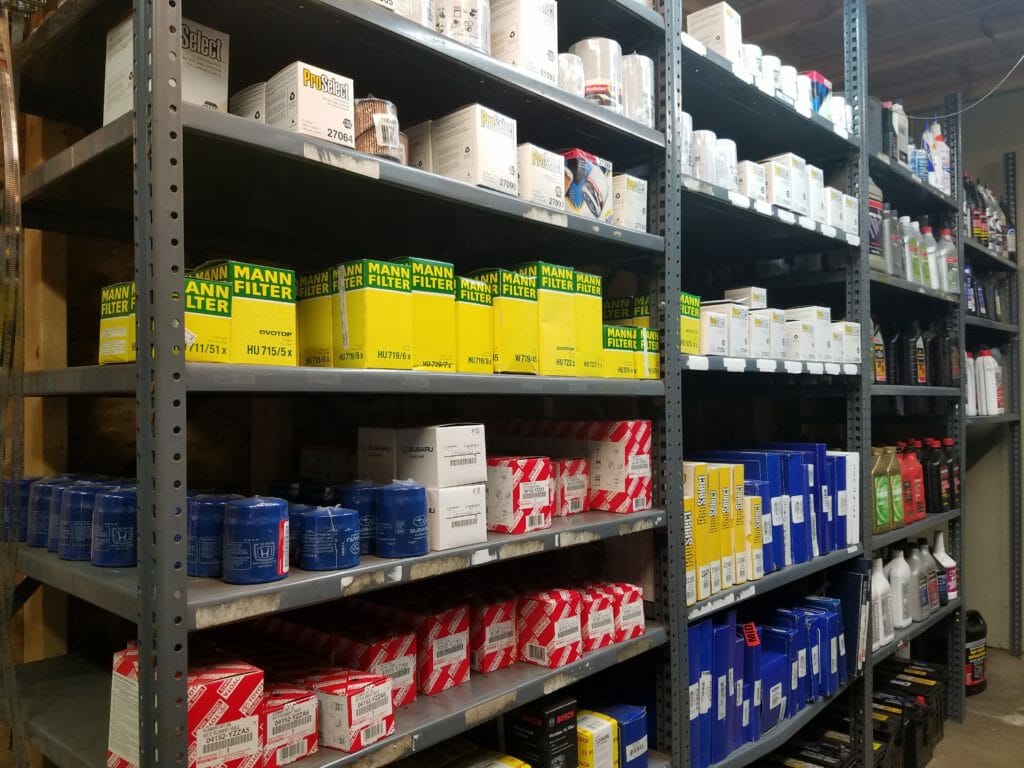Is Your Auto Shop Able To Get Replacement Parts Now?

Earlier this year auto industry experts warned that replacement parts were going to be harder to come by due to the coronavirus outbreak. They wanted dealerships and auto shops to be aware and prepare to explain service disruptions to customers. Coronavirus has interrupted both production of parts worldwide and shipping as well. This will throw another challenge at auto shops for the next six months or more.
Car Repairs Don’t Happen without Replacement Parts
We’ve discussed before how important efficient parts acquisition is for getting repairs done quickly. In 2019 we polled our members on hours produced, and according to our survey the number one delay was waiting for customer authorizations. Under normal circumstances, any delay in acquiring parts slows down the repair process, costs the shop money, and creates tension between the shop and its customers.
That’s under normal circumstances.
As we all know, the coronavirus outbreak began in China, and, as a result, China enforced draconian lockdowns of its citizens in many parts of the country. This had an enormous impact on manufacturing. China is a major producer of replacement auto parts. They sold $14.2 billion worth of parts last year, not including tires. China’s manufacturing sector is back up and running, but there was a significant gap in production that will be felt by auto shops, body shops, and car owners who do their own repairs.
In April, John Bozzella, president and CEO of the Alliance for Automotive Innovation, stated: “We’re now seeing in dealer service centers a shortage of parts necessary to maintain and repair vehicles and, of course, at a point at which personal mobility is critically important, the ability to be able to do warranty work and complete recalls and service vehicles, is, in fact, essential, and the shutdown has definitely started to have an impact on the availability of those service parts.”
What Is the Current Demand for Automotive Parts?
It’s hard to predict the exact impact COVID-19 will have on any one shop. Some parts of the country are still under strict lockdowns while others have been freer from the beginning. Regional lockdowns have the result of decreasing traffic, car problems, and accidents which means that auto shops have less work. That means they may have more of a problem keeping their doors open than they do getting auto parts for repairs.
Areas that were locked down but are now open will have car owners who, because of COVID lockdowns, are now struggling to pay their bills. Some of these people will try to do their own repairs. It’s hard to know if this might exacerbate local shortages or not as shops compete for parts with car owners doing their own repairs.
Not all makes of cars will have shortages of replacement parts because not all auto parts manufacturing is done in China. Earlier this year automakers including General Motors, Honda, and Hyundai struggled to maintain their supplies. General Motors was already experiencing shortages because of a six-week strike that happened in the fall of 2019. Since most of the world was affected by the coronavirus, there were shutdowns in auto parts manufacturing that occurred after the Chinese shutdown. Some of these will not have lasted as long and will not have been affected by shipping issues created by the recent trade war between the U.S. and China. Predicting how these other shutdowns will affect the supply of parts is complicated.
Auto shops service a huge variety of makes and models, but some makes and models are more popular in different parts of the country. How the shortages shake out and affect car owners and auto shops’ search for replacement parts depends also on the parts needed. Recalls will mean an increased demand for specific parts. Everyday breakdowns and accidents create a generalized demand for parts.
All of the above factors will affect the demand and availability of replacement parts to varying degrees. We are interested in hearing from our members if they are experiencing shortages and, if so, how they are handling them. Please weigh in with your experiences or advice either here or in our forums. We are living in interesting times, and it’s always good to share what we know so that more auto shops can keep their doors open, their customers happy, and their staff employed.


So, a lot of things rest on business contacts with the “right” suppliers. This is bad news for you if you don’t have such contacts yet. But there is good news too. Almost everyone who tried to sell spare parts at one time, as a result, was able to make money at the very least. “It’s hard for me to remember even one spare parts store that would have gone bankrupt,” says a friend of mine who has been working in this field for many years. Hearing this, I invited her to sit down at the table and try to compose step-by-step instructions on how to create such a business. Another important part is to find reliable shipping agent. If, during the launch phase, you are able to draw up a realistic cash flow plan for at least the next 12 months, then you are on the right track. Specific figures will vary depending on the city, the chosen niche, the geographic location of the property, the luck of the owner and – last but not least – the economic situation in the country, which is especially difficult to predict (and almost all the goods in the car shop are, of course, imported). But the very principle of drawing up a plan does not change from these factors. The profit and loss forecast for a small but successfully hitting the “market” shop may look like this: